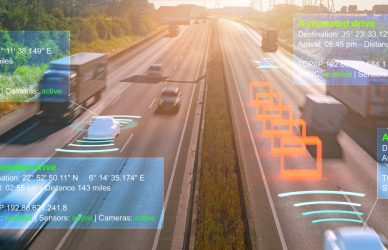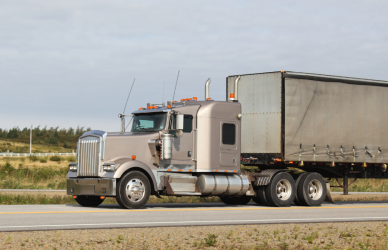As California inches closer to a decisive vote, a bill is gaining momentum that would enforce a six-year requirement for drivers to remain in the cab during the development of Level 3, 4, and 5 autonomous trucks.
AB 316, which recently passed the state Senate Transportation Committee with unanimous support and was previously approved by the Assembly, has sparked a heated debate. The crux of the discussion revolves around whether drivers should still be mandated to stay in the cab even after developers and regulators declare their autonomous vehicles ready for deployment without drivers.
Under this bill, the Department of Motor Vehicles would be tasked with submitting a report to the relevant legislative committees, evaluating the performance of autonomous vehicle technology. The report would assess its impact on public safety and employment in the transportation sector. The deadline for this report is set for January 1, 2029, or five years after testing commences, whichever comes later, upon the Legislature’s appropriation.
“The goal of AB 316 is simple,” Democratic Rep. Cecilia Aguiar-Curry, lead sponsor of the bill in the Assembly, told the committee. “Full testing and full deployment of an autonomous vehicle over 10,000 pounds can be permitted to operate on public roads in California. While we await the analysis of safety data recommendations to the Legislature by the executive branch, that vehicle must be accompanied by a qualified human safety operator.
“The only conceivable motivation for rushing forward without a monitor in the cab is to increase profits at the risk of public safety and the livelihoods of our trained expert trucking workforce,” she added.
The International Brotherhood of Teamsters, a supporter of the legislation, emphasized that it would not only ensure the safety of autonomous trucks, but also protect the employment of heavy truck drivers.
Although there were some concerns raised by the Transportation Committee, they unanimously voted to approve the bill on July 11 and pass it on to another committee for further review.
A video recording of the committee hearing captured the testimony and comments from committee members, some of whom described the bill as “tough.”
Ariel Wolf, the general counsel of the Autonomous Vehicle Industry Association, expressed concern that the legislation would hinder investment in heavy autonomous vehicle manufacturing. He believes that decisions about deployment should be made by safety experts rather than the Legislature.
“In its current form, this bill is not a guardrail,” Wolf told the committee. “It is a total shutdown of a multibillion-dollar industry in California. That’s because it requires a human operator to be in the vehicle forever, in perpetuity. There is no sunset because in order to remove the requirement the Legislature has to act again, at the earliest, in six years.”
“No company can plan to operate in California without the certainty that the technology will one day operate driverless. That’s the fundamental business case of autonomous trucking,” Wolf added
Aguiar-Curry emphasizes that the bill aims to promote transparency in testing and development of heavy AV trucks while discouraging hidden lobbying by truck manufacturers. She assures that the intention is not to harm the industry and values the input of drivers, which should not be overlooked.
“Let me make this clear — I believe this technology has great potential,” she told the committee.
Source: Transport Topics











